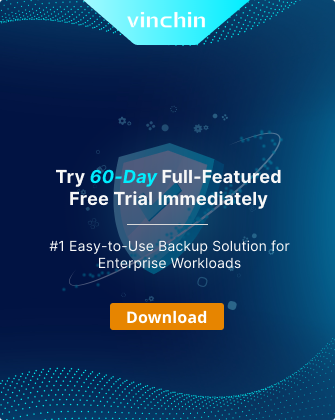-
What is Azure VM?
-
What is AWS EC2?
-
Azure VM vs. AWS EC2: Which one is right for you?
-
Ensuring AWS EC2 data protection with Vinchin Backup & Recovery
-
Conclusion
-
Azure EC2 equivalent FAQs
What is Azure VM?
Azure Virtual Machines (Azure VM) is an IaaS (Infrastructure as a Service) solution provided by Microsoft Azure that allows users to run Windows or Linux virtual machines on the Azure cloud platform. It provides scalable computing power to support a variety of workloads such as web application hosting, database running, high performance computing (HPC), AI training, and more.
Key features of Azure VM:
Flexible Compute Options: Provides a wide range of VM instance types covering application scenarios such as general-purpose computing, high-performance computing, GPU computing, and large memory.
Scalability: With Azure VM Scale Sets, the number of VMs can be automatically adjusted to fit different business needs.
High Availability: Supports Availability Sets and Availability Zones to ensure high reliability of services.
Microsoft Ecosystem Integration: Seamlessly integrates with Windows Server, Active Directory, SQL Server, and Azure Kubernetes Service (AKS) for Microsoft technology stack organizations.
Hybrid Cloud Support: With Azure Arc, manage Azure resources in local and other cloud environments for hybrid cloud deployments.
What is AWS EC2?
Amazon Elastic Compute Cloud (Amazon EC2) is an IaaS compute service provided by Amazon Web Services (AWS) that allows users to run VM instances on the AWS cloud platform. EC2 provides highly scalable, pay-as-you-go computing power for a wide range of scenarios, including Web applications, AI/ML, high-performance computing (HPC), and big data analytics.
Key features of AWS EC2:
Rich Instance Types: EC2 provides a wide range of instances such as T (general purpose), M (balanced), C (compute-optimized), R (memory-optimized), P (GPU), I (storage-optimized), etc., to satisfy different compute requirements.
Auto Scaling: With Auto Scaling Groups (ASGs), EC2 can automatically adjust the number of instances based on traffic load to improve resource utilization.
Elastic Networking: Support for Amazon VPC (Virtual Private Cloud) allows users to customize network configurations for enhanced security and manageability.
Storage Options: Supports Amazon EBS (Elastic Block Store) as persistent storage and can be combined with Amazon S3, Amazon FSx for object storage and file storage.
Global Reach: AWS has multiple Regions and Availability Zones (AZs) to ensure business continuity and low-latency access.
Security and Compliance: Provides IAM (Identity and Access Management), AWS Shield (DDoS protection), and AWS WAF (Web Application Firewall) to enhance the security of cloud environments.
Azure VM vs. AWS EC2: Which one is right for you?
| Feature | AWS EC2 | Azure VM |
| Configuration Name | Instance types | VM series |
| Custom Images | Amazon Machine Images (AMI) | Azure VM Image |
| Scalability | Auto Scaling | Virtual Machine Scale Sets (VMSS) |
| Hybrid Cloud Support | AWS Outposts | Azure Arc |
| Operating System Support | Linux, Windows, etc. | Linux, Windows, etc. |
| Virtual Network | Amazon Virtual Private Cloud (VPC) | Azure Virtual Network (VNet) |
| Performance | Delivers strong raw computing power, ideal for high-performance computing and large-scale data processing. | Offers flexible and configurable performance, optimized for enterprise applications integrated with Azure services. |
| Pricing | Compute capacity is billed per hour or second. | Compute capacity is billed per minute. |
| Compliance | Supports ISO 27001, SOC 1/2/3, PCI DSS. | Supports ISO 27001, SOC 1/2/3, HIPAA, HITRUST, FedRAMP High. |
When choosing the right VM platform, users should consider the features of both based on business needs, technology stack, compliance requirements, and budget. Azure VM and AWS EC2 are both leading IaaS (Infrastructure as a Service) platforms, each with unique strengths that fit different user needs.
Azure VM offers flexible compute options and powerful integration capabilities, especially for organizations that require deep integration with the Microsoft technology stack, support for high availability and hybrid cloud deployments, and a particular advantage in compatibility with Microsoft services such as Windows Server and Active Directory.
AWS EC2, on the other hand, stands out for its rich set of instance types, auto-scaling capabilities, and global reach for organizations requiring high-performance computing, elastic networking, and broad regional support, while AWS's support for security and compliance has earned it a great deal of trust, especially in application areas such as big data analytics and AI/ML.
Ensuring AWS EC2 data protection with Vinchin Backup & Recovery
When it comes to choosing a cloud platform, AWS EC2 offers powerful computing power and flexibility for a variety of enterprise-level applications, and is especially good at handling high-performance computing, big data analytics, and other scenarios. However, it is equally vital to ensure the security of these business-critical data.
To ensure that the data of EC2 instances is effectively protected, Vinchin Backup & Recovery is an ideal solution. It not only supports efficient agentless incremental backups to avoid additional burden on EC2 instances, but also enables cross-platform recovery to ensure high data availability and resilience. Combined with real-time monitoring and notification, Vinchin provides users with convenient and reliable backup management, enabling data recovery in the shortest possible time to ensure business continuity.
Using Vinchin Backup & Recovery, you can easily protect AWS EC2 instance data, ensuring enterprise data security and reliability while significantly reducing the risk of data loss due to unexpected incidents.
Vinchin Backup & Recovery operates with great simplicity, requiring just a few easy steps.
1.Select the backup source object storage
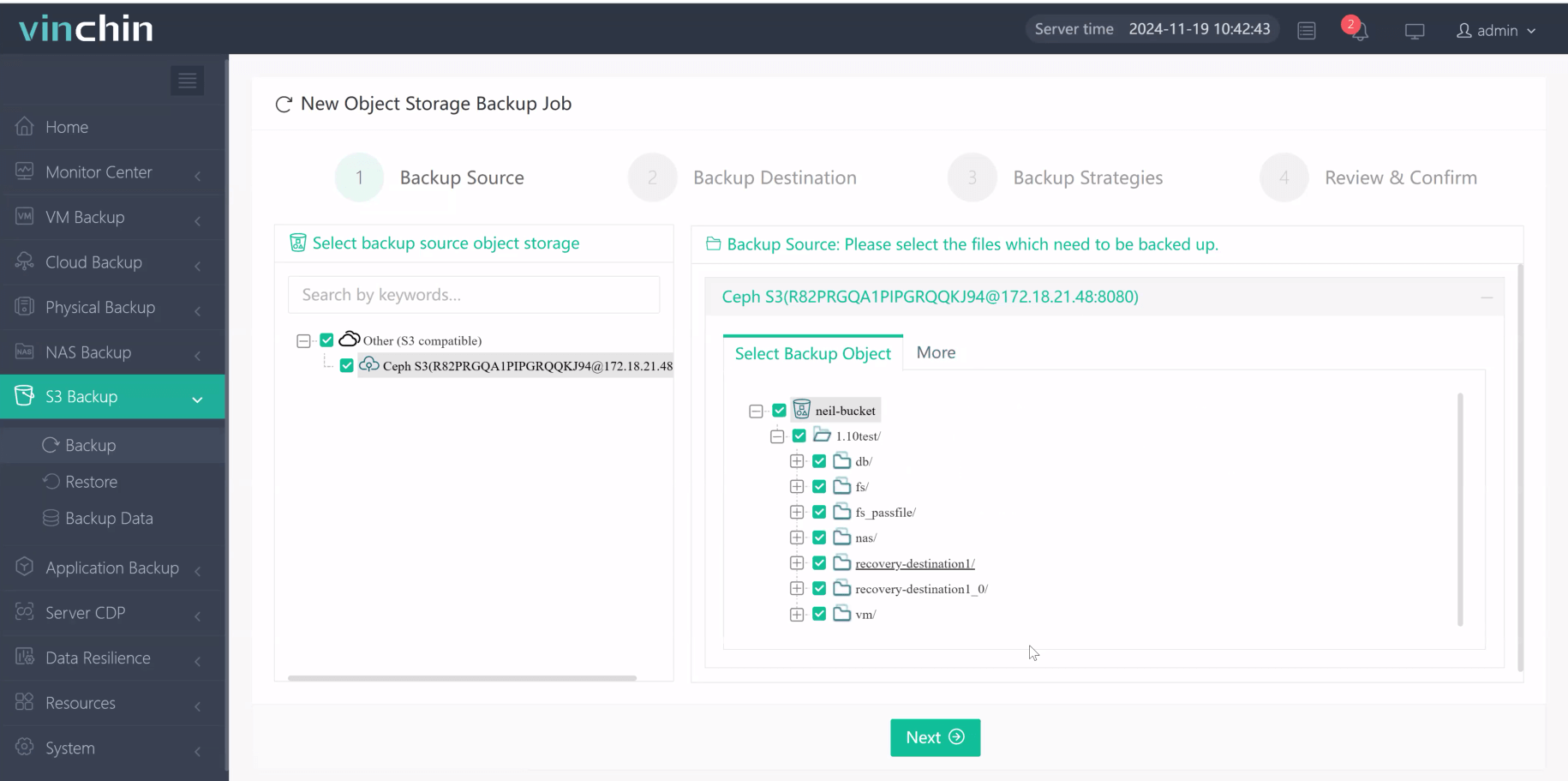
2.Then select backup destination
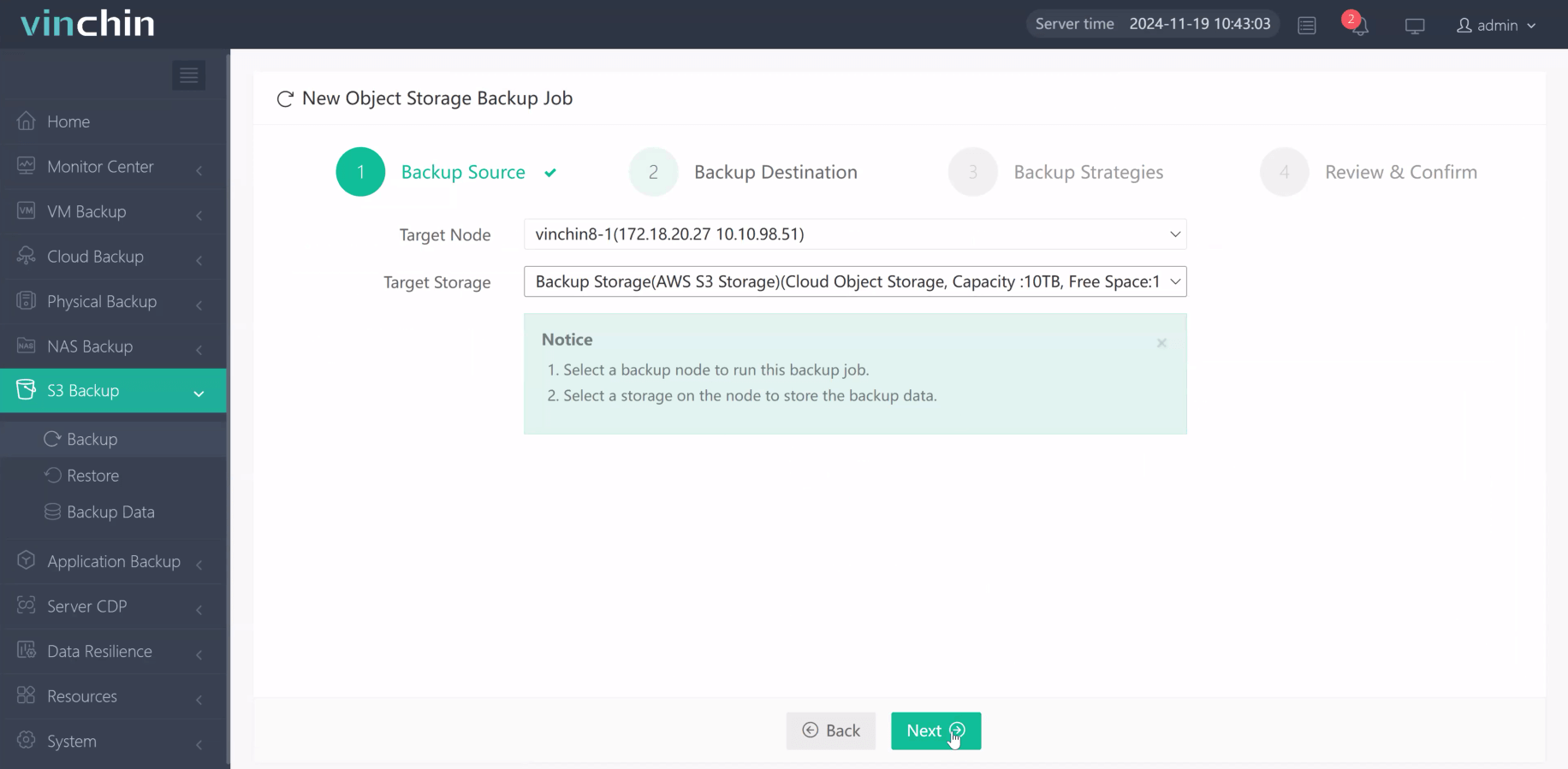
3.Select strategies
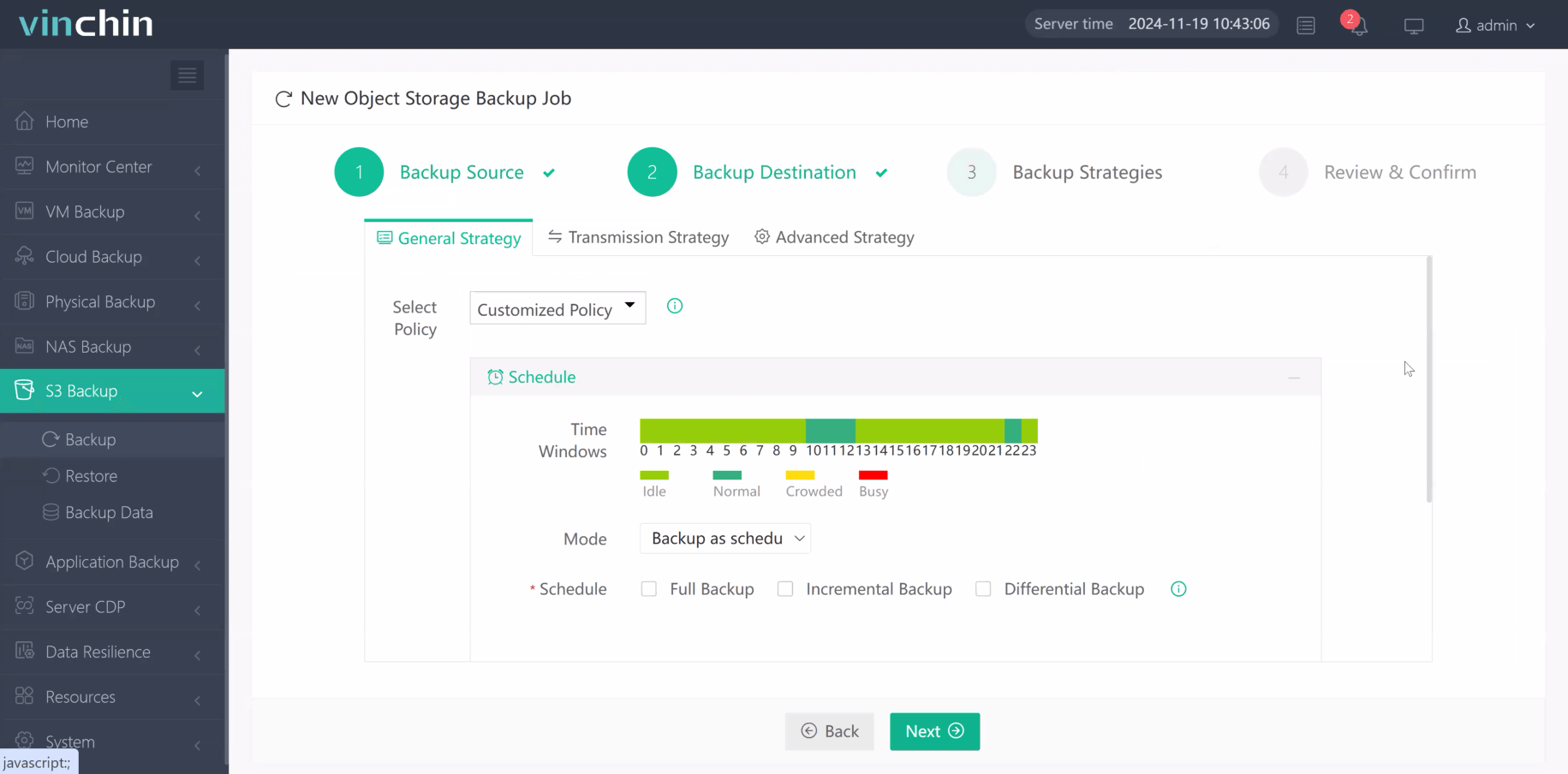
4.Finally submit the job
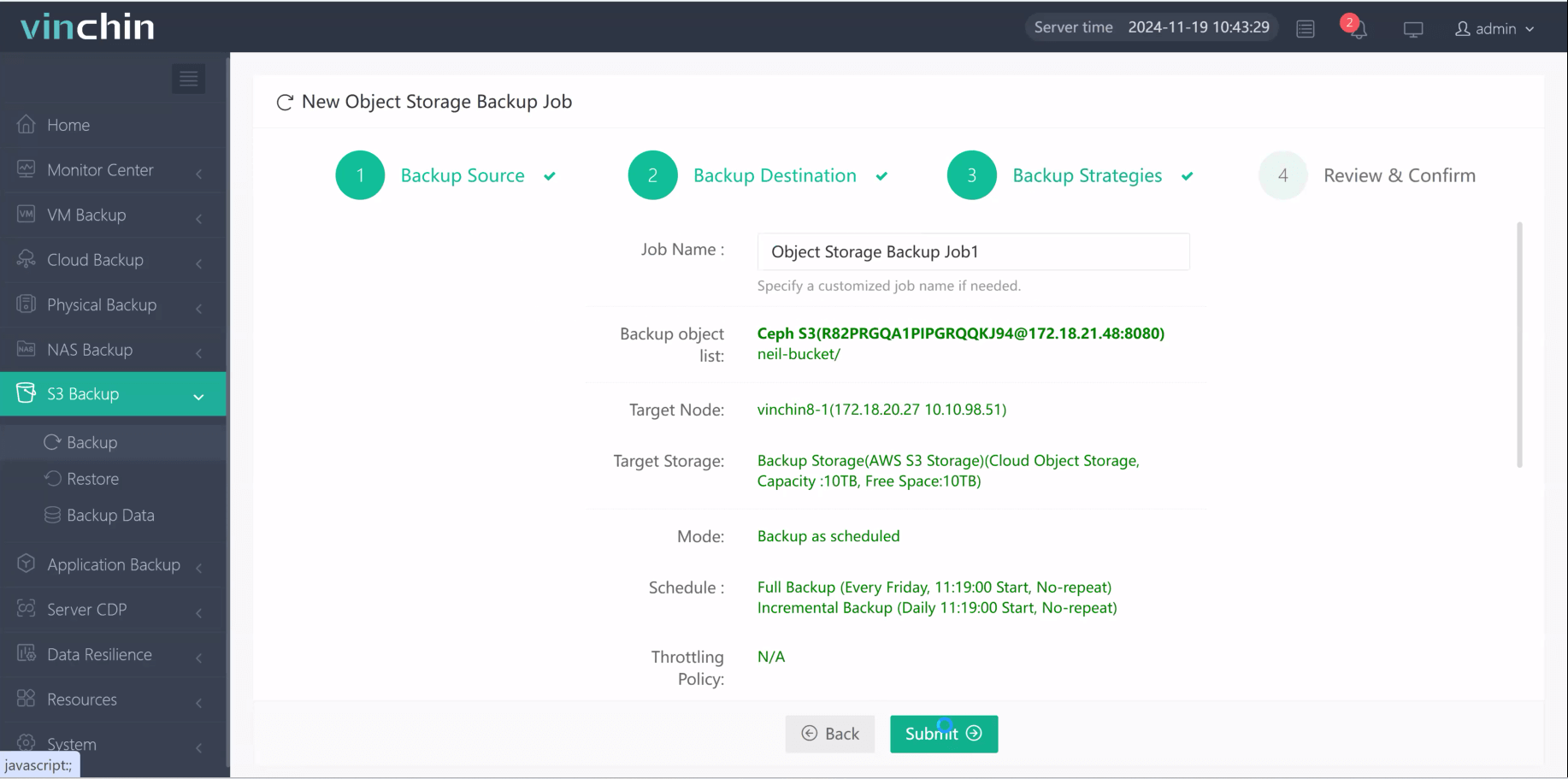
With a backup and restore process that's 5x faster, Vinchin optimizes the backup window and RTOs, ensuring efficient data protection.
Users can explore its full capabilities with a free 60-day trial in a real-world environment. For more details, please contact Vinchin directly or reach out to our local partners.
Conclusion
Both Azure AWS EC2 equivalent are robust IaaS platforms. Azure VM stands out for its strong Microsoft ecosystem integration and hybrid cloud capabilities, while AWS EC2 offers a wide range of instance types, auto-scaling, and global coverage.
To ensure AWS EC2 data protection, Vinchin Backup & Recovery delivers fast, agentless backups, cross-platform recovery, and real-time monitoring, guaranteeing high availability and minimal downtime.
Azure EC2 equivalent FAQs
Q1: How to choose the right instance type / VM size?
A1: In both AWS EC2 Azure equivalent, it is important to choose the right instance or VM size based on the needs of the application (e.g., CPU, memory, storage, and network performance). Both providers offer multiple configurations to accommodate different workloads.
Q2: Can you migrate your applications between different cloud platforms?
A2: Yes, it is possible to migrate applications from one platform to another by exporting a custom image or using containerization technologies such as Docker. However, it is important to note that there may be some compatibility issues that need to be addressed.
Share on:






